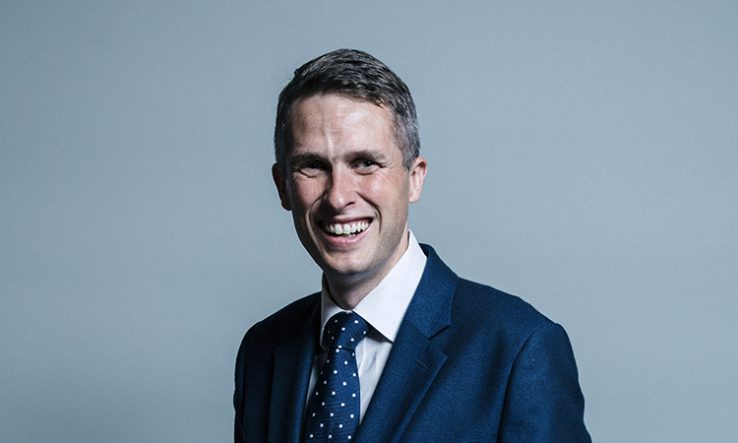
Image: Chris McAndrew [CC BY 3.0], via Wikimedia Commons
Higher education takes a back seat as government focuses on improving further education
Education secretary Gavin Williamson has abandoned a 20-year-old pledge to get half of young adults into higher education, instead throwing his weight behind what he called the “forgotten 50 per cent”.
In a speech for the Social Market Foundation on 9 July, Williamson revealed plans for a “wholesale rebalancing” away from universities and made a personal commitment “to put further and technical education at the heart of our post-16 education system”.
“It exasperates me that there is still an inbuilt snobbishness about higher education being somehow better than further, when really, they are both just different paths to fulfilling and skilled employment,” he said, adding that he rejected the “absurd mantra” that the half of school leavers who do not go to university have “somehow come up short”.
In the speech, Williamson outlined a white paper to be published in the autumn that will “set out our plans to build a world-class, German-style further education system in Britain, and level up skills and opportunities”.
The Department for Education said Williamson had officially scrapped former Labour prime minister Tony Blair’s 1998 pledge to see half the population go on to higher education, calling it “a target for the sake of a target”. In his speech, Williamson described Blair’s aspiration as a “50 per cent target for university attendance”, when in reality the former Labour prime minister had actually called for “50 per cent of young adults going into higher education”—which would include higher technical qualifications, and those studying higher education in further education settings.
Williamson explained that while universities “have an important role to play in our economy, society and culture”, there were “limits to what can be achieved by sending ever more people to university, which is not always what the individual or our nation needs”.
He said leaders would be “condemning our country to low productivity and lost opportunity for a generation” without fundamental changes to the education system, claiming that 34 per cent of graduates are in non-graduate jobs and national productivity is only 4 per cent higher than it was in 2008.
The government has not yet responded to Philip Augar’s review into post-18 education, which recommended sweeping reforms to the further education system.
Williamson said the financial incentives announced by chancellor Rishi Sunak in his 8 July financial statement—including a £2 billion “kickstart” scheme to keep young people out of unemployment and thousands of pounds in recruitment bonuses—was “a clear vote of confidence by this government in further education”.
“If you want to transform many of our left-behind towns and regions, you don’t do it by investing more money solely in universities,” he said. “You invest in the local college—the beating hearts of so many of our towns.”
However, higher education experts reacted uneasily to the speech. Greg Walker, chief executive of the MillionPlus modern universities body, said he supported the boost for further education but stressed that universities “are some of the highest quality providers of higher technical education”.
“Some of the rhetoric in the speech misses the mark as it appears to see higher education and further education as alternatives, which they are clearly not,” he said.
Alistair Jarvis, chief executive of the vice-chancellors’ body Universities UK, said while it was important to increase support for further education “it would be a mistake to view post-18 education as a binary choice between supporting either higher education or further education”.
Commenting on the speech on social media, Rachel Wolf, co-founder of the think tank Public First and a former Number 10 policy adviser, said Williamson had “fired a starting gun” on major further and higher education reforms for the autumn. She said it was less clear whether the government wanted to even out incentives between further and higher routes or prevent “certain kinds of courses”, but added that it had “obviously realised colleges needed support”.
“As aspiration focuses on places as well as individuals, colleges are pretty vital,” she wrote on Twitter.
Jo Grady, general secretary of the University and College Union, warned that more funding for further education “should not be at the expense of higher education” and scrapping the 50 per cent target “might secure a headline” but recovery from Covid-19 “does not involve cutting the proportion of young people accessing education”.
“The government should be encouraging people to attend all forms of education, not picking artificial winners in a market it has created, nor denigrating university education at a time when the sector desperately needs support,” she said.